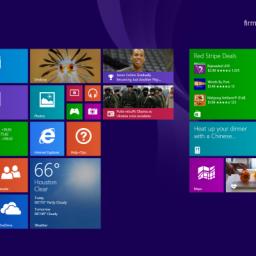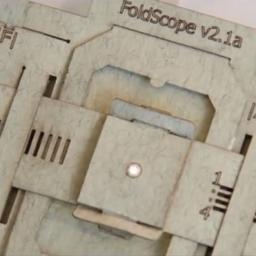
I admit it; amongst all my Linux computers, I still have one remaining Windows box. Until
Blizzard takes a hint from
Steam, I have to endure the horror of Windows in order to get my weekly
raid fix. Now, being a higher end gaming box and the graphic card being one of those 2 slot varieties, the fans can make a good bit of racket. No problem, I simply moved the system to another room (the cords go through the wall and are still plenty long enough) and viola! Quiet gaming room! All is good, until I finish and want to turn off the system. You see, Windows 7 had this convenient little "Shut Down" button that was easy to get to.
But, last year when I upgraded the system's hardware I (mistakenly) opted to try out the newer version 8 of Windows. Well, Microsoft did a fine job of hiding that shutdown option. It takes no less than 6 clicks and several full screen transitions to get to it using the default UI. When it takes less time to get out of your chair, open the door, walk down a small hallway, open another door, walk over to a humming tower, and depress its power button than it does to do the software equivalent, you know your interface is borked.
But no longer! Microsoft's new
Windows 8.1 Update 1 will re-add that missing "Shut Down" option to its (still) metro-tiley start page. And that is progress!

This
oragami microscope can be folded in 10 minutes with 50 cents of materials. In addition to the 3D printed card-stock, the kit includes a small lens, an LED, and a watch battery. The goal of the project is to provide a
cheap medical screening tool that could be widely used in the developing world.
This Sunday,
a reboot of Carl Sagan's "Cosmos" will premier on Fox. PBS aired
the orginal series in the 1980's.
From the article:
Based on a preview of the first of 13 episodes, "Cosmos: A Spacetime Odyssey" is certainly trippy and visually dazzling, but it's also a big-thought-provoking series crammed with scientific and historical fact.
In an age when too many TV documentaries succumb to reality-style formats, and when so many reboots of old shows are little more than ratings ploys, and when special effects obscure or replace substance, MacFarlane and his partners have kept their eyes on the value of the material. They have created something that arouses wonderment, despite the fact that it's airing in prime time, in front of mainstream viewers.
When I first started studying bioinformatics almost fifteen years ago (!) what drew me to the field was the promise that we might soon be able to provide effective, personalized treatments for a wide variety of diseases. There have been some successes along the way, like
genetic tests for warfarin dosage, but for the most part our gains in understanding of basic biology haven't been matched by clinical advances. Now it looks like
that's finally about to change, and it's about time.
Too many people suffer and die from too many diseases that we more or less understand, but can't effectively treat. I hated it when I worked in hands-on patient care, and I hate it now in the lab. We are, finally, getting there.

The latest
weekly HumbleBundle is a select of games from PopCap including the popular Bejeweled and Plants vs Zombies games. The caveats at the bottom for
Origin, EA's answer to Steam, includes a term stating:
EA MAY RETIRE ONLINE FEATURES AND SERVICES AFTER 30 DAYS NOTICE
I am wondering at what point this becomes unacceptable? If I have paid for a game which has online "features and services" then shouldn't the company selling this support the online side for as long as possible, or am I just living in a pipe dream?
On a side note, it is a pity that this HumbleBundle doesn't come with the Android version of these games; and that they don't offer a DRM free download of the games.
Good news everyone! I've just pushed out the first version of expandable comments! They may still be a little rough around the edges, but you are welcome to try them out below or on any other story.
As for the nerdy details, the scripts are using
jQuery to pull the
raw comments in
JSON format from the server. The two
HTML5 slider elements control the display thresholds. Comments that are under the "Hide" threshold are completely hidden. Comments that are under the "Expand" threshold are collapsed. The rest of the comments are shown in full. Collapsed comments show the subject text + the first line of body text. You can click on any collapsed comment to expand it.
For those that prefer to be script free, we will offer an "Enable JavaScript" checkbox in your user settings page. Unchecking this option will present you with server-side-generated pages instead of the JavaScript enabled pages.
The folks at "Talking Cloud" (who are coming at the subject from an obvious bias) point out that corporations are looking more and more at a corporate desktop environment
where desktops are in the Cloud. With more and more users needing access to traditional Windows applications inside the corporate firewall, the rise of
Desktop-as-a-Service may be the future for your average worker bee.
Google's Advanced Technology and Projects group has announced a series of three developer events for
Project Ara, which hopes to create a modular smartphone. Google hopes to have a working prototype ready within weeks, with a commercial release in the first quarter of 2015.
Motorola first unveiled the Project Ara initiative in October 2013 and Google is keen to push ahead with the project, despite selling off Motorola to Lenovo last month.
This is possible because Google decided to keep the ATAP group under its Android umbrella when it sold Motorola.
The design for Project Ara is based on the concept of Phonebloks, created by Dutch designer Dave Hakkens. It consists of a structural frame called an "endoskeleton" that holds various modules in place. The modules can be anything ranging from a new display, keyboard, an extra battery or something not yet thought of.
Endoskeletons will come in three sizes and cost approximately $50.
 I admit it; amongst all my Linux computers, I still have one remaining Windows box. Until Blizzard takes a hint from Steam, I have to endure the horror of Windows in order to get my weekly raid fix.
I admit it; amongst all my Linux computers, I still have one remaining Windows box. Until Blizzard takes a hint from Steam, I have to endure the horror of Windows in order to get my weekly raid fix. 

